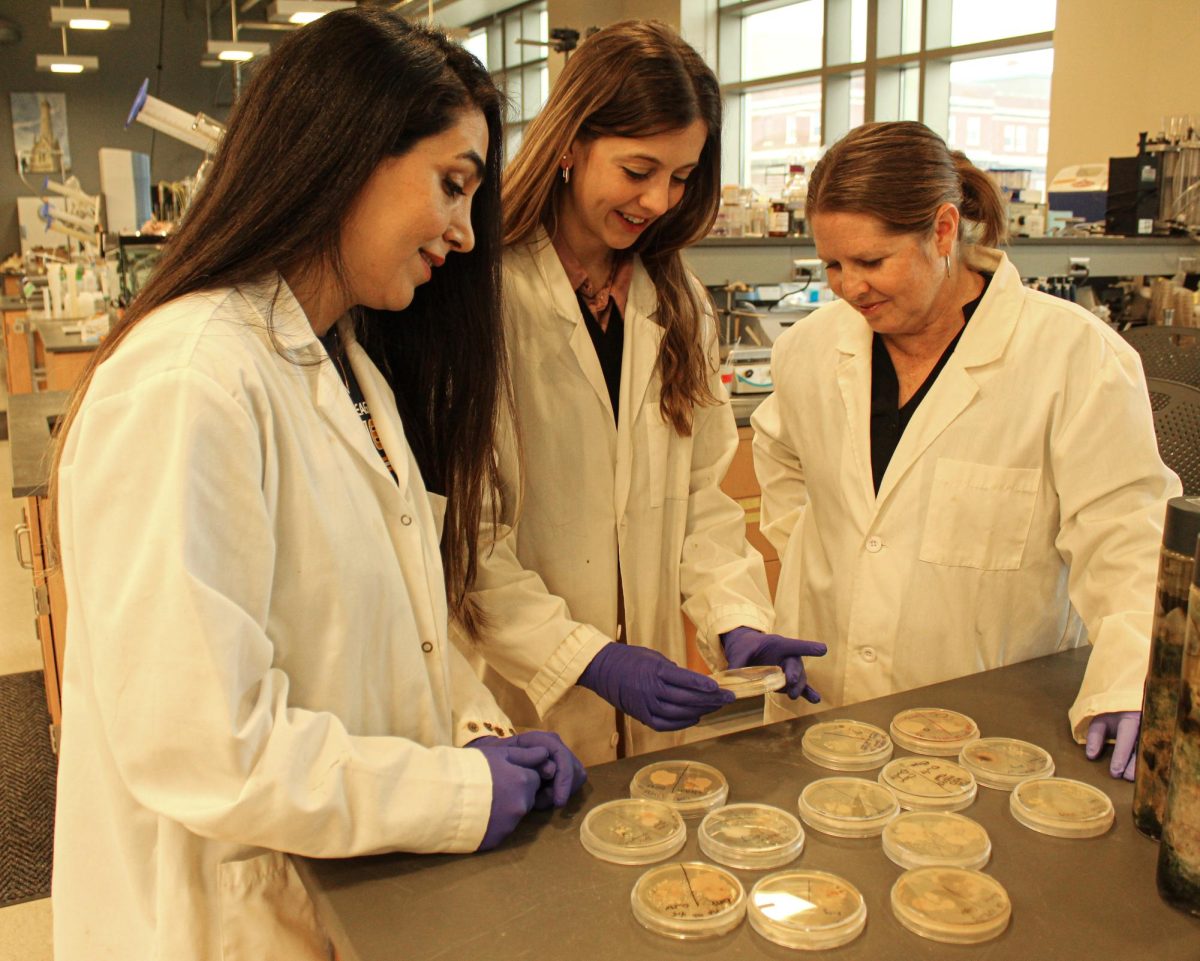 P. Aarne Vesilind, an author and former professor of civil and environmental engineering at Duke University, visited Marquette Tuesday to discuss the unpleasant reality of “green” engineering and corporations’ motives for engaging in green activities.
P. Aarne Vesilind, an author and former professor of civil and environmental engineering at Duke University, visited Marquette Tuesday to discuss the unpleasant reality of “green” engineering and corporations’ motives for engaging in green activities.
His talk, “Kermit’s Lament: It’s Not Easy Being Green,” was this year’s annual Dr. Edward D. Simmons Lecture on Society and Human Values.
“It’s not easy being green,” Vesilind said, referring both to the song of the famous Muppet character Kermit and the difficulty of achieving large-scale environmental sustainability through green engineering.
Vesilind’s discussion revolved around the concept of sustainability, which he described as “the process where we are able to have energy and materials in such a way so that we do not rob future generations.” He questioned whether sustainability is feasible from a scientific perspective and if we should try to achieve it. According to his presentation, 90 percent of our energy and almost all of our raw materials are derived from nonrenewable sources.
He said at the present level of material use, there is no way society can achieve an idealistic form of sustainability due to the economic impossibility of recycling some types of materials and forms of energy.
Vesilind acknowledged the possibility of achieving a less intense, “soft” sustainability in which “we do the best we can.”
In addition to examining the feasability of sustainability, Vesilind discussed why corporations invest in sustainable practices. The top three reasons, according to his presentation, are to enhance their reputations, gain competitive advantage and save on expenses.
Vesilind cited three examples in which companies invested in green practices because it benefitted them economically. In particular, he explained why Wal-Mart began selling energy and cost-efficient light bulbs. He said the company reasoned that all of the money Wal-Mart customers saved in their energy bills would ultimately be returned to the store through an increase in sales. Profit, not a concern for the environment, was the driving force behind Wal-Mart’s green actions, Vesilind said.
“The capitalistic economic system is incapable of preventing or solving environmental problems unless the solutions are profitable,” he said.
Andrew Thompson, a sophomore in the College of Business Administration, said economic benefit is probably the most practical approach to achieving sustainability in an economically savvy way.
“Idealism is never going to get anything done,” Thompson said, noting that an increase in capital gains would probably be the biggest motivating factor for politicians.
Vesilind said he would still prefer companies to “go green” because it is morally right, not just because “sustainability pays.” He emphasized the need for corporations to attain the “moral courage” needed to invest in environmentally friendly practices.
John Haugland, a junior in the College of Engineering, said he would still support those companies soley motivated by sustainability’s financial benefits because of its positive outcome.
“Regardless of where their morals are – the effect is still the same,” Haugland said. “(But) it would be great if their morals were in the right place.”
Vesilind advised students to be wary of future employers who do not use a moral compass to guide some of their business decisions. During interview processes for a job, Vesilind recommended students ask their interviewer about the companies’ environmental intiatives.
“I would ask the interviewer: ‘What has your corporation done that has been the right thing to do from an environmental or sustainability standpoint – that has cost you money?’” Vesilind said. “Don’t tell me what you have done that looks like it’s environmental but you made money on it. But what has actually cost you money that was the right thing to do?”








